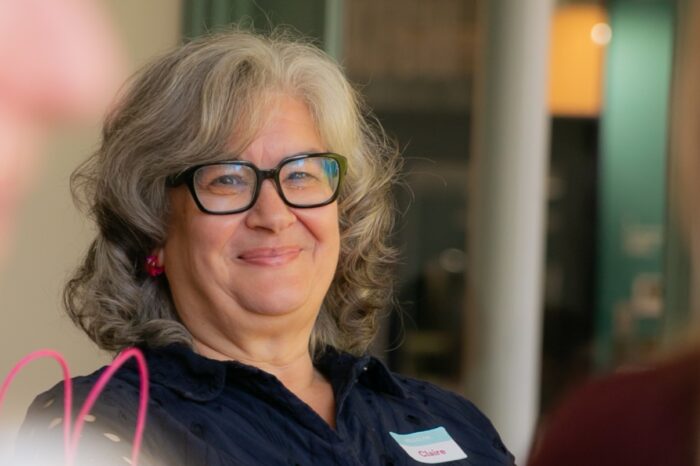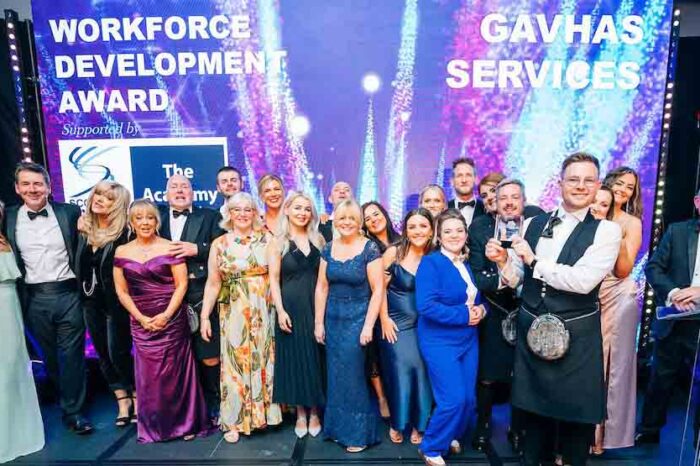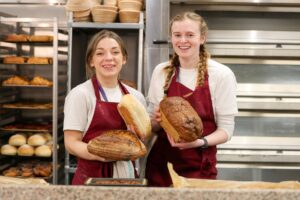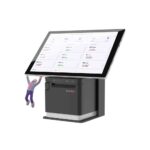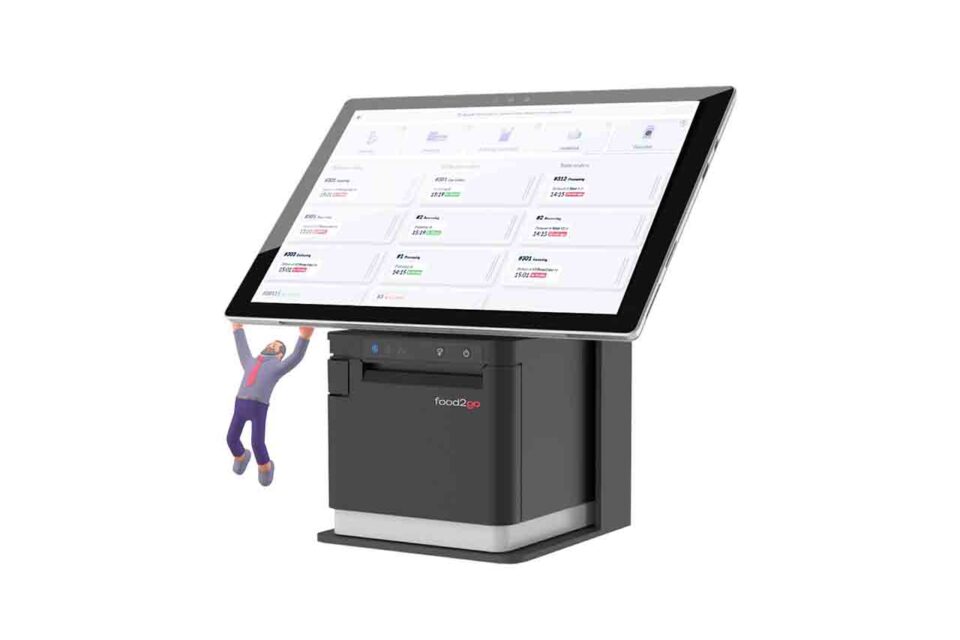
By Scott McLeod
Food2go is a Newcastle based digital solutions business for independent or chain operators that work within the hospitality industry including restaurants, takeaways and bars. They provide these businesses an opportunity to build their own platforms as an alternative to Just Eat or Uber Eats.
The idea for the business began five years ago when company founder Purdeep Haire, then Chief Technology Officer (CTO) Keith Forgan and colleague Paul Telford were looking to develop a model to target convenience stores.
Purdeep said: “So our families operated and ran convenience stores probably for the last 35 years, only recently have we moved out of that market at all in terms of selling our last businesses. Although I have been predominantly concentrated within the software sector for the last 10 years.
What we found when we were developing it was we were probably five years ahead of the curve. During Covid more convenience stores were becoming more orientated to allow for local ordering. So what we did was we flipped the model from convenience stores to targeting restaurants & takeaways.
To be honest, that that worked really well. We’ve managed to acquire a large number of multisite clients as well as a whole host of single site stores and we’ve not really looked backwards since.”
The team at food2go spent the first few years writing their own software code from top to bottom, developing it to the point they were confident it was ready to go to market. The way the code is written means that whatever requirements are incoming from clients they will be able to provide it.
This stops food2go from being reliant on any third prior parties to help meet their client’s requirements.
There software uses multitenant which allows for multiple tenants, meaning that multiple clients can share the same infrastructure rather than be separated for data. It also allows them to ensure that all of their customers to be on the same software base.
They’re constantly doing improvements so that the software is updated and they’re able to roll out the best version of it for all their clients no matter how long they’ve been onboard.
When it comes to any potential issues they use what is called agile development to monitor their sites internally. If one of their users or a customer flags an issue on one of the sites they are able to adapt to identify the issue and recreate it which will give them a timeframe of when it can be fixed.
As it is their software they’re usually able to fix an issue the same day it’s flagged ensure clients don’t lose too much business as a result of a bug in their site.

They have intentionally kept the team small as they want to avoid growing the team just for the sake of it. They have 10 full time staff most of which are involved in programming and development as that is where they spend the majority of their labour costs.
Their team also includes people in roles such as sales, admin and finance so everyone on the team plays a part in helping the business.
While many of their clients will still be hosted on Uber Eats or Just Eat, food2go gives them another avenue to process orders as well as offering rewards to loyal customers or give them cheaper rates if they order directly.
Purdeep explains the difference between them and these platforms saying: “It’s about the aggregators bringing in new customers and us working with these businesses to provide another alternative option for the customers place orders that works out better for the business in the long run as they’re saving on commissions adding to their sales on the end.
We live alongside of the aggregators rather than saying it’s us or them. We don’t operate like that but what we do say is if a business only relies on the aggregators, then in the long run, they’re just going to lose margin consistently they won’t develop their underlying brand.
Whereas if they operate both and they actually get effort and resource into promoting their own solution, then they will be in the best possible position that you can be in.”
Food2go now works with multiple award winning brands with hundreds of sites utilising their software. Among their success stories are the multi award winning Midlands fast food chain Big Johns for whom food2go developed a branded ordering solution featuring multiple stores and varying menus.
This resulted in website that was fully mobile responsive and a branded app that has seen a 30% increase in customer spending and sales increase of £2 million across digital platforms in the first 6 months.
Another client that they helped is pan-Asian restaurant and takeaway chain Chop and Wok, who had 10 sites across London and the Midlands and a strong social media following. Despite this the brand’s founders were unhappy with the number of orders they were receiving so approached food2go to fully redevelop their existing ordering solution.
Food2go deployed a powered solution that featured a branded mobile responsive ordering site and a branded mobile app available to be downloaded in android stores. They allowed Chop and Wok management to have control over pricing and promotions across each site.
This lead to a 20% increase in average basket spend, a 50% increase in registered users on their online platform and 40% more engagement in push notifications on their app.
On the growth of the brand Purdeep comments: “We can almost attribute, you know, nearly a hundred percent of our growth is down to word of mouth recommendation. So for us, the key thing is being open and transparent about fees, so we don’t take commission. We charge a fixed fee per site, and that fixed fee is exactly the same, whether you’ve got a hundred sites or you’ve just got one.

This way everybody knows it’s consistent, that fair pricing structure, which doesn’t penalise customers for being busy is also backed up by, you know, phenomenal customer service. We are really proud of the fact that we’ve never lost a client due to an issue that’s down to us.”
The idea of a fixed fee which for food2go clients is £70 per month is something that they feel is the right decision for their clients and is more important than their own profits.
Purdeep elaborates: “We understand that that concept of paying commission on your orders but it didn’t sit well with us as a business that our clients should be penalised for being successful. We want them to increase their revenues through the platform because that’s good for us and good for them, but we don’t want to penalise them with additional fees for being successful.
From a business perspective we don’t want churn within our business, as in we want to grow the number of sites that we’ve got. However we don’t want to lose 10 but add 20, and eventually we grow. We just don’t want to lose any, we just want to keep adding and part of that is obviously we can control customer service.”
He added: “Making sure that clients get the service that they required, but we’ve never wanted fees to be a reason for them to look elsewhere. So what we find is what some of our competitors are charging 3%, 4%, or 5%. We will regularly be contacted by their customers because of the appeal of fixed fee, because they know what it is that they’re going to do and they can kind of project that into their business going forward.”
Given the nature of their business being entirely online food2go were fortunate to not be one of the many businesses that struggled during the pandemic. In fact this period presented even more opportunities for growth.
Purdeep said: “So during the pandemic we were in a unique position in that it didn’t cause any harm to our business. If anything, it lifted the whole sector up because table ordering and QR code ordering became more and more covalent.
One of the things that we didn’t do unlike a number of our partners, we didn’t rush to get solutions out there quickly with high commission rates because we recognize that eventually the market will go back to normal. So if you’re charging a high commission rate, that’s when those businesses choose to migrate away from you when they’ve got more time to organise something better.
So for us, even during the pandemic, we concentrated more on providing our existing clients with exactly what it was that they needed to survive pandemic, and then acquiring clients still through the pandemic period, but with a view to ensuring that they will be long-term clients, not just short-term during the pandemic.”

